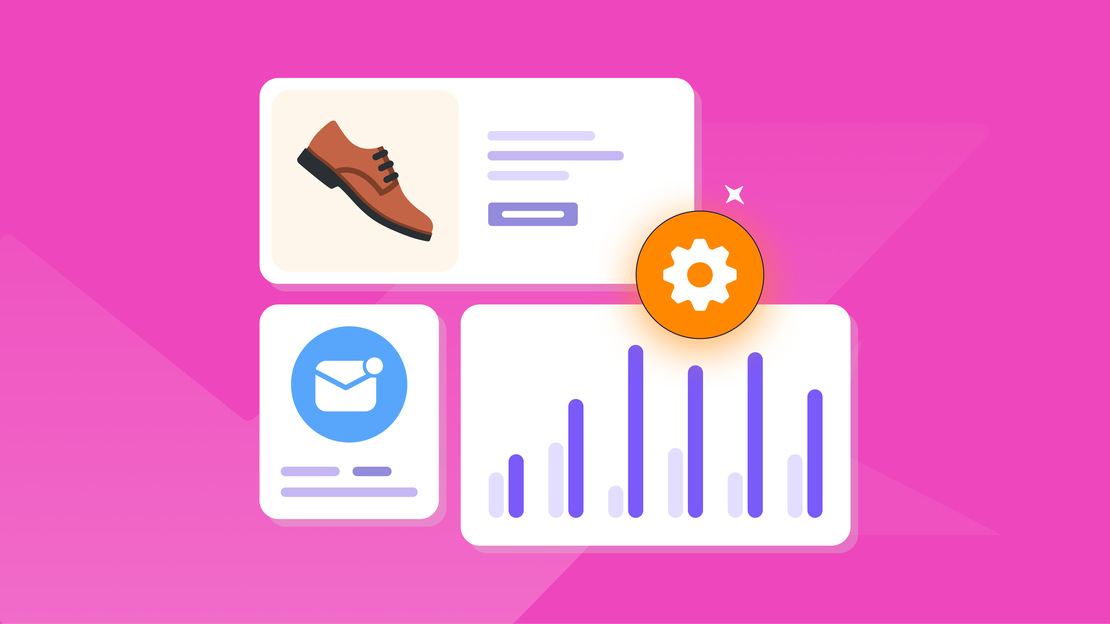Personalization: What Is It and How Can You Do It Automatically?

Table Of Contents
What is personalization?
Have you ever noticed ads on websites, Instagram, or Facebook that seem to know exactly what you’re interested in? Maybe you Googled boots this morning, and now you’re seeing boot ads everywhere. That’s a form of personalization.
Some people find that annoying—others less so. But what many people do appreciate are personalized emails and follow-ups. In fact, people are six times more likely to click on a personalized email campaign, which greatly increases your chances of conversion.
Other examples of personalization include:
- Dynamic content on your website (e.g., a shop recommending products based on browsing history).
- Using first names in your communication.
- Segmenting your audience based on behavior, interests, location, etc.
- Email campaigns with tailored content.
- Personalized follow-ups after a purchase, subscription, or question.
- Personalized timing (e.g., sending a message on someone’s birthday or a month after a purchase).
Why is personalization important for organizations?
According to a report by McKinsey & Company, companies that excel at personalization generate 40% more revenue than their competitors. Moreover, 71% of consumers expect personalized products and communication, and 76% get frustrated when they don’t receive it.
If that’s not reason enough to invest in personalization, here are a few more advantages:
- Higher customer satisfaction. Customers feel seen and understood.
- More conversions. Personalized communication leads to more clicks, purchases, and sign-ups.
- Stronger customer loyalty. When you show you care, people stick around.
- More efficient marketing. You send only what’s relevant—saving time and money.
- A competitive edge. Today’s consumers expect a personal touch. If you don’t offer it, your competitors will.
What software do you need for personalization?
To keep your data organized, you’ll need at least a CRM system. But depending on what you want to personalize, you may also need additional tools. Let’s start with the most important one:
1. CRM (Customer Relationship Management) system
This is your foundation. A CRM system collects and stores customer data, such as behavior, preferences, purchase history, location, and interests, and allows you to segment your audience and communicate in a targeted way. A good CRM also automates actions based on customer behavior.
For example:
- When someone downloads a lead magnet (like an e-book), the system can automatically send them a series of follow-up emails.
- When a lead opens a quote, the system can notify you or your sales team to follow up.
Around 71% of small businesses in the U.S. use a CRM system, and for good reason: businesses using CRM software experience up to 300% more conversions.
Try our CRM system for free
At FlowQi, you can try our CRM system completely free. The best part? It comes bundled with two powerful extras: Project Management and Task Management tools—giving your business even more structure.
Want to try all our tools? Sign up for our BETA Program and get full access for free.
2. Email marketing software
Email marketing software lets you set up personalized campaigns based on the data stored in your CRM system, such as first name, date of birth, or purchase history.
It also allows you to segment your email list. You can group contacts based on behavior (e.g., who clicked on the previous email), interests (topics they care about), location, age, customer status, and more.
For example, new leads might receive a welcome series introducing your offer, while existing customers get tips on how to make the most of your product.
This way, you send relevant, targeted content instead of generic bulk emails. It may sound like extra work, but with a CRM and integrated email marketing software, it’s easy—and often fully automated.
3. Chatbots with AI and personalization
A chatbot can recognize returning visitors via email or cookies and deliver personalized responses or suggestions. It can also ask questions and adjust its answers based on the visitor’s input.
Thanks to artificial intelligence (AI), chatbots can automatically escalate complex queries to a human team member.
Advanced chatbots can even connect with your CRM, webshop, or email marketing software. This allows them to “know” who the user is and what they’ve previously purchased, viewed, or downloaded.
Even though a chatbot may seem impersonal, it actually boosts customer satisfaction. Your business becomes available 24/7, and most customer questions are answered immediately. If not, the chatbot informs the user that a team member will follow up shortly.
Chatbots also reduce the workload for your team, as they resolve many queries independently—and they help you collect better data for your marketing and follow-ups.
Conclusion: personalization is a wise investment
Personalizing your communication, products, or services pays off. It strengthens customer loyalty and drives more sales. To collect and use data for automated personalization, a CRM system is essential.
Want a free personalized demo? Contact us to learn more.